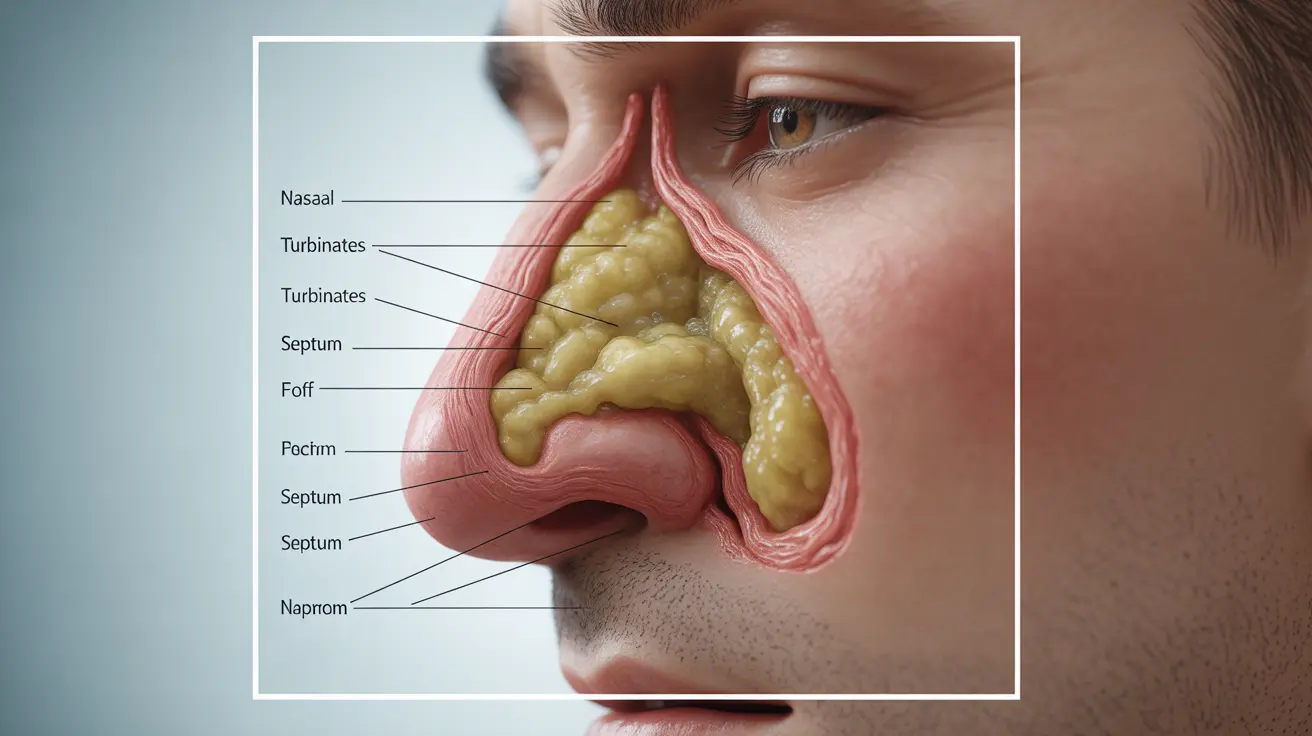Nasal congestion, commonly known as a stuffy nose, can significantly impact your daily comfort and quality of life. This common condition occurs when nasal tissues become swollen with excess fluid and mucus, making it difficult to breathe through your nose. Understanding its causes, treatments, and when to seek medical attention can help you manage this condition effectively.
Whether caused by allergies, infections, or environmental factors, nasal congestion affects millions of people worldwide. This comprehensive guide will explore various aspects of nasal congestion, from identifying its root causes to finding effective relief methods.
Common Causes of Nasal Congestion
Nasal congestion can stem from various sources, each requiring different approaches for effective treatment:
Viral Infections
The common cold and other viral infections are frequent causes of nasal congestion. These typically resolve within 7-10 days and are accompanied by other symptoms like sore throat and cough.
Allergies
Seasonal or perennial allergies can trigger nasal congestion when your body reacts to environmental allergens such as pollen, dust mites, or pet dander.
Structural Issues
Anatomical problems like a deviated septum or nasal polyps can lead to chronic nasal congestion that may require medical intervention.
Effective Treatment Options
Home Remedies
Several natural methods can provide relief from nasal congestion:
- Steam inhalation with or without essential oils
- Saline nasal irrigation
- Staying hydrated
- Using a humidifier
- Elevating your head while sleeping
Over-the-Counter Solutions
Various medications can help manage nasal congestion:
- Decongestant nasal sprays (limited to 3-day use)
- Oral decongestants
- Antihistamines
- Saline nasal sprays
When to Seek Medical Help
While most cases of nasal congestion resolve with home care, certain situations warrant medical attention:
- Congestion lasting more than 10-14 days
- Severe sinus pain or pressure
- High fever
- Thick, discolored nasal discharge
- Difficulty breathing
- Recurring or chronic congestion
Special Considerations for Children
Managing nasal congestion in children requires extra care and attention:
- Use saline drops and nasal aspirators for infants
- Maintain proper humidity in their room
- Ensure adequate fluid intake
- Consult pediatricians before using any medications
- Monitor for signs of respiratory distress
Frequently Asked Questions
What are the most common causes of nasal congestion and how can I identify them?
The most common causes include viral infections (colds), allergies, and sinus infections. You can identify the cause by noting accompanying symptoms: allergies often come with itching and sneezing, while infections may include fever and colored discharge.
What are effective home remedies and over-the-counter treatments to relieve nasal congestion?
Effective remedies include saline rinses, steam inhalation, and staying hydrated. Over-the-counter options include decongestants, antihistamines, and nasal sprays. Always follow package instructions and duration recommendations.
When should I see a doctor for nasal congestion that does not improve?
Seek medical attention if congestion persists beyond two weeks, is accompanied by severe pain or fever, or if you develop breathing difficulties. Chronic congestion may indicate underlying conditions requiring professional evaluation.
How do treatments for nasal congestion differ between allergies, infections, and structural nasal issues?
Allergy treatments focus on antihistamines and avoiding triggers. Infections may require decongestants or antibiotics if bacterial. Structural issues often need medical evaluation and possibly surgical intervention.
What safe options exist for treating nasal congestion in infants and young children?
Safe options include saline drops, nasal aspirators, humidifiers, and elevated head positioning during sleep. Always consult a pediatrician before using any medications, as many over-the-counter products aren't suitable for young children.
Understanding and properly managing nasal congestion can significantly improve your comfort and breathing. While many cases can be treated at home, don't hesitate to seek medical attention when symptoms are severe or persistent.




